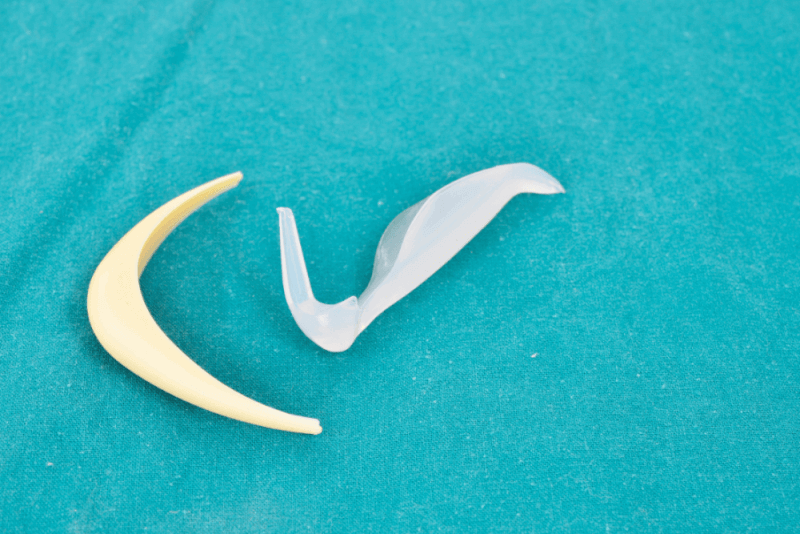What Is a Chin Implant?
A chin implant is used in operations to correct the appearance of the chin when the jaw structure does not align with the facial shape, even though tooth and jaw development are normal. Chin implants can help achieve a more aesthetic facial appearance.
How Is a Chin Implant Done?
Before applying a chin implant, the patient must undergo a general examination, followed by treatment planning. If the patient is suitable for chin implant surgery, the surgery will be performed. The general procedure for the surgery is as follows:
- The procedure is usually performed under general anesthesia, although local anesthesia may be used in rare cases.
- A small incision is made under the chin or inside the mouth to place the implant.
- The incision site is opened to expose the jawbone, and the prosthesis is applied.
- The incision site is then stitched and bandaged.
The type of implants used in the surgery may vary. Therefore, it is essential to select the appropriate implant before surgery. Chin implants made of firm silicone fit securely onto the jawbone, allowing them to last for many years.
When Is a Chin Implant Used?
The following situations may lead to the preference for a chin implant:
- Dissatisfaction with the appearance of the chin
- A jaw structure that is not in harmony with the facial form
- A jaw structure that is too small in proportion to the face
- A weak or recessed chin structure
- A chin that is set back
Pre-Surgery Considerations for a Chin Implant
Patients should be thoroughly evaluated and informed about the procedure before a chin implant. The following points should be considered before the surgery:
- No food or drink should be consumed for 8 hours before the surgery.
- Alcohol and smoking should be stopped a few days before the surgery.
- Medications and herbal supplements with blood-thinning effects should be discontinued.
- Regularly used medications should be reported to the doctor.
Post-Surgery Considerations for a Chin Implant
After chin implant surgery, patients typically return to their routines quickly. However, certain precautions should be taken post-surgery, including:
- Paying attention to symptoms that may indicate potential complications after the operation.
- Removing bandages only according to the doctor's advice.
- Avoiding intense and strenuous physical activities.
- Refraining from touching the face and chin area during the healing process.
- Using prescribed painkillers and cold compresses if pain occurs.
- Sleeping on the back with the head elevated for 1-2 weeks after the surgery.
Chin Implant Recovery Process
The recovery process after chin implant surgery is usually quick. Patients can return to work or school within a week after the surgery. However, it is recommended to wait 4 weeks before participating in strenuous activities. The final results may take up to 3 months to become fully apparent, with swelling gradually subsiding during this period. Numbness in the lower jaw and lips caused by the surgery typically resolves on its own within a few days.
Risks of a Chin Implant
Chin implant surgeries are generally considered safe procedures. As a result, the potential complications are limited. These complications include:
- Hematoma
- Implant displacement
- Infection
- Side effects of anesthesia
Chin Implant and Nutrition
After chin implant surgery, dietary habits must be adjusted for some time. During this period, consuming soft foods will prevent strain on the jaw. If the incision for the surgery is made inside the mouth, patients should only consume clear liquids for the first few days after the surgery. They can then gradually switch to soft foods. It is recommended to continue consuming soft foods until the incision inside the mouth has healed.







